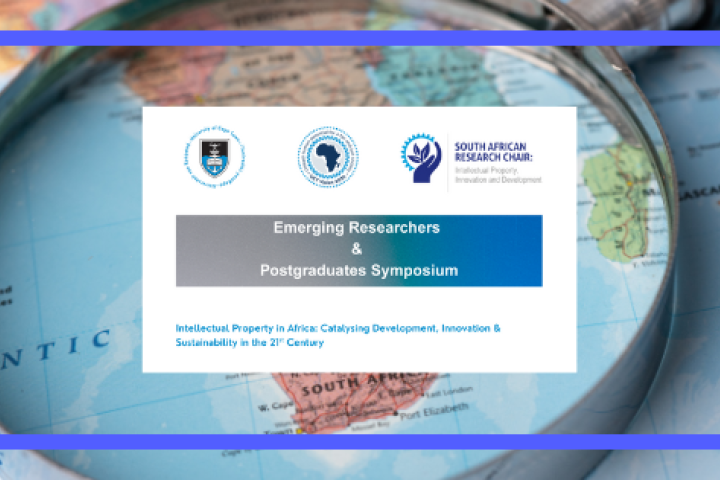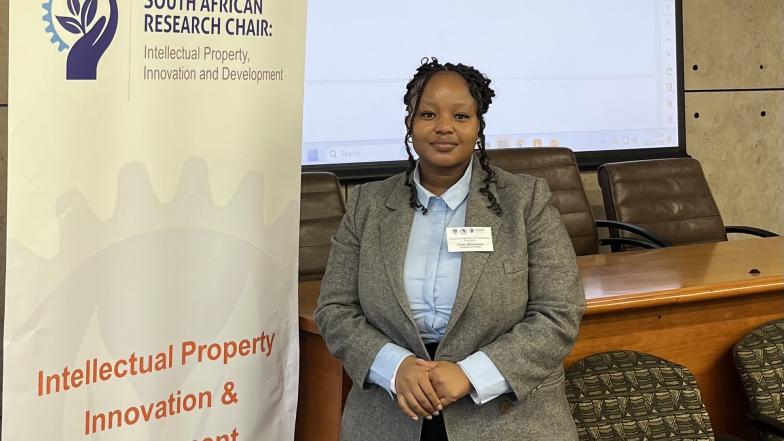Indigenous Knowledge, Intellectual Property, and my journey as an Emerging Researcher

For centuries, Indigenous African communities have lived in harmony with their environments, where communities developed agricultural systems suited to local climates, herbal medicines derived from native plants, and sustainable harvesting practices that promote ecological regeneration.
Traditional Knowledge and African’s Identity
Traditional knowledge is oral, spiritual, ecological, and practical and forms a dynamic body of wisdom that is constantly evolving. It is essential not just for biodiversity conservation but also for food security, health, climate adaptation, and cultural identity. Much of the biodiversity in Africa survives today because of Indigenous stewardship. Sacred groves, customary hunting restrictions, traditional farming techniques, and spiritual taboos have preserved countless ecosystems. Yet this balance is increasingly under threat from industrial agriculture, deforestation, mining, and biopiracy.
Traditional Medicine
Traditional knowledge continues to shape pharmaceutical development, cosmetics, agricultural innovations, cultural economies. However, many communities do not benefit from the commercialization of their ancestral knowledge. The practice known as biopiracy, which occurs when companies or researchers extract biological resources and traditional knowledge without fair compensation or recognition of the country of origin of the genetic resources, remains a pressing issue.
Many examples demonstrate this: traditional African plants like pelargonium sidoides, rooibos, sceletium tortuosum, baobab, hoodia and sclerocarya birrea have been patented and marketed internationally, often with misappropriation or no benefit shared with the communities that nurtured and protected them.
The Role of Intellectual Property Law
Conventional intellectual property (IP) law traditionally protects patents, trademarks, and copyright. IP law does not neatly capture the communal and intergenerational knowledge integral to traditional knowledge. The diversity of traditional knowledge – sacred sites, medicinal knowledge, ancestral remains, land management, language, stories, art, designs, symbols, songs, music, dance, ecology and know-how – all make it challenging to fit traditional knowledge into conventional IP. Existing gaps in IP law include limited subject matter and duration of protection, and the absence of explicit recognition of collective custodianship.
To ensure justice and sustainability, African nations are encouraged to strengthen and adapt their IP laws to recognize the collective, communal nature of Indigenous knowledge.
This includes:
- Developing sui generis legal systems to protect traditional knowledge and genetic resources
- Implement access and benefit-sharing agreements
- Document traditional knowledge in culturally sensitive ways that respect community ownership and consent
- Educate Indigenous communities on their rights and the economic value of their knowledge
My Experience Attending the IP Symposium for Emerging Researchers and Postgraduates
My experience in attending the IP Symposium for Emerging Researchers and Postgraduates in University of Cape Town, organized by the SARChI Research Chair in Intellectual Property, Innovation and Development, and generously funded by Open AIR, was a truly enriching and transformative experience both academically and personally.
The symposium provided a rare opportunity for emerging researchers like me to engage deeply with current issues in IP, innovation policy, and development. The sessions were thoughtfully structured to encourage dialogue, debate, and critical reflection. I had the chance to present aspects of my research, receive constructive feedback, and exchange ideas with peers who are working on exciting and impactful projects.
I am incredibly grateful to Open AIR for funding my participation. Their support made it possible for me to attend, and it reflects their ongoing commitment to nurturing the next generation of researchers and thought leaders in the field of IP. Their investment in emerging voices is not only commendable but also essential for building a more inclusive and locally grounded IP discourse.
The experience has left me energized, better informed, and more confident in my research journey.
